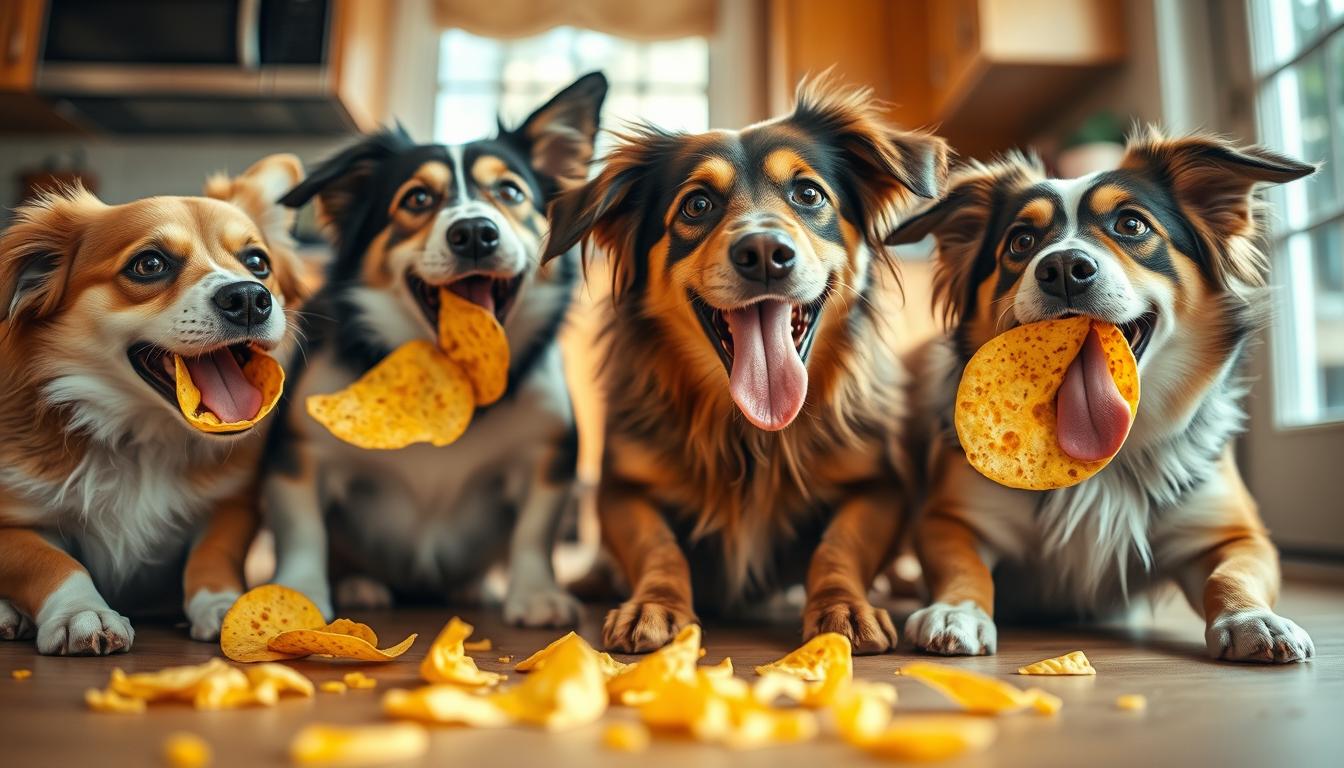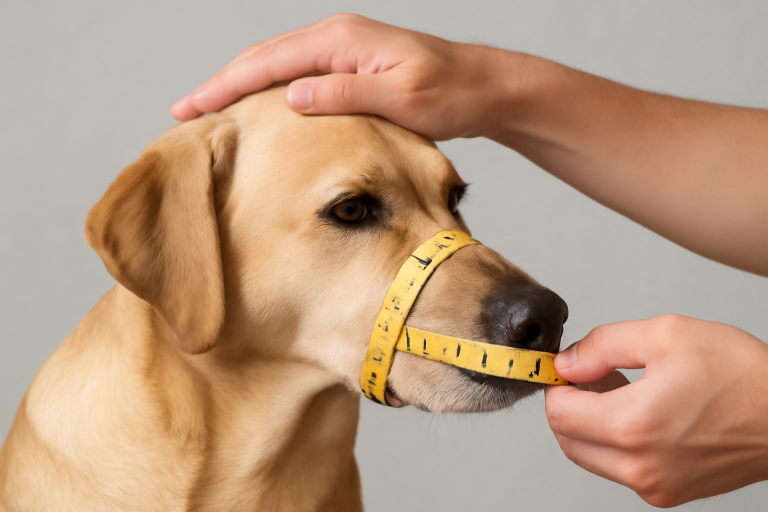Can Dogs Eat Corn Tortillas?
As a dog owner, you might wonder if it’s safe to share your favorite foods with your furry friend. One common question dog owners ask is, ‘Can dogs eat corn tortillas?‘ Let’s dive into the safety of sharing corn tortillas with your dog.. Corn tortillas are a staple in many cuisines, particularly in Mexican and Latin American cooking. They’re made from corn masa and are often used in dishes like tacos and enchiladas.
Corn tortillas can be a nutritious addition to a dog’s diet if given in moderation. However, it’s crucial to consider the ingredients and preparation method to ensure they are safe for consumption.
Key Takeaways
- Corn tortillas are made from corn masa and can be a nutritious treat for dogs.
- Moderation is key when sharing corn tortillas with your dog.
- Always check the ingredients and preparation method before giving corn tortillas to your dog.
- Corn tortillas should not replace a dog’s regular, balanced diet.
- Consult with a veterinarian before making any changes to your dog’s diet.
Understanding Corn Tortillas and Their Ingredients
The ingredients and nutritional profile of corn tortillas are essential factors to consider when deciding whether to feed them to your dog. If you’re wondering, ‘Can dogs eat corn tortillas?’ it’s important to first understand what goes into a typical corn tortilla.
What Are Corn Tortillas Made Of?
Corn tortillas are primarily made from corn masa, which is derived from corn kernels that have been soaked in limewater (a process known as nixtamalization) to remove the hulls. This process makes the corn more easily grindable and increases its nutritional value. The masa is then mixed with water and sometimes a pinch of salt. The mixture is formed into small balls, which are flattened and cooked on a griddle.
The simplicity of corn tortillas’ ingredients list makes them a relatively safe food for dogs, provided they are free from additives and seasonings. However, it’s crucial to understand that while the ingredients themselves may not be toxic, the overall nutritional suitability for dogs is another consideration.
Nutritional Profile of Corn Tortillas
Corn tortillas are primarily composed of carbohydrates, with a moderate amount of fiber and a small amount of protein. They are relatively low in fat. The nutritional profile can vary depending on whether they are made from white or yellow corn and whether any additional ingredients are included.
| Nutrient | Amount per Tortilla |
|---|---|
| Calories | 60-80 |
| Carbohydrates | 12-15g |
| Protein | 1-2g |
| Fat | 1g |
| Fiber | 1-2g |
Understanding the nutritional profile of corn tortillas is vital for dog owners. While they can provide some carbohydrates and fiber, they lack the protein and other nutrients that dogs require for a balanced diet. Thus, while not harmful in moderation, corn tortillas should not replace a dog’s regular, nutritionally balanced meals.
Are Corn Tortillas Safe for Dogs?
Many dog owners wonder if it’s safe to feed their dogs corn tortillas. The answer lies in understanding the composition of corn tortillas and their potential impact on canine health.
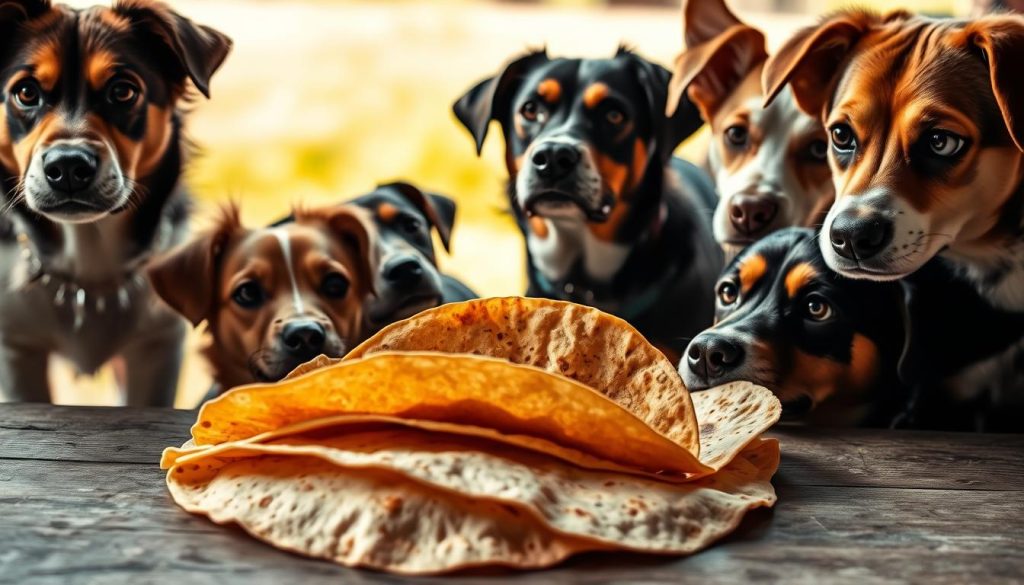
Potential Benefits for Dogs
Corn tortillas can provide dogs with a source of carbohydrates, which can be beneficial in moderation. They are also relatively low in fat, making them a potentially safer option compared to high-fat human foods.
Some benefits include:
- Providing energy through carbohydrates
- Being low in fat
- Serving as an occasional treat
However, it’s crucial to consider that dogs have different nutritional needs than humans, and their diets should be tailored accordingly.
Risks and Considerations
While corn tortillas are not toxic to dogs, there are several risks to consider. One of the primary concerns is the potential for allergic reactions or sensitivities to corn. Additionally, corn tortillas can be difficult for dogs to digest, potentially leading to gastrointestinal upset.
Some risks include:
- Allergic reactions to corn
- Digestive issues due to difficulty in digesting corn tortillas
- Potential for choking or obstruction if not consumed properly
As with any human food, it’s essential to monitor your dog’s reaction to corn tortillas and consult with a veterinarian if you have any concerns.
“It’s always best to err on the side of caution when introducing new foods into your dog’s diet.”
How Corn Tortillas Affect Dogs’ Digestion
The digestibility of corn tortillas for dogs is a topic of concern for many pet owners. While corn is a common ingredient in many dog foods, the way it’s prepared and presented in tortillas can affect how dogs process it.
Digestibility of Corn for Dogs
Corn is a carbohydrate that dogs can digest, but the extent of its digestibility depends on several factors, including the dog’s individual digestive health and the preparation method of the corn tortilla. Cooked corn, as found in tortillas, is generally more digestible than raw corn.
Key factors influencing corn digestibility in dogs include:
- The dog’s overall health and digestive efficiency
- The presence of other ingredients in the tortilla
- The cooking method used to prepare the tortilla
Signs of Digestive Issues
If a dog consumes corn tortillas and experiences digestive issues, there are several signs to watch for. These can include:
- Gastrointestinal upset, such as vomiting or diarrhea
- Abdominal pain or discomfort
- Changes in appetite or stool quality
Monitoring your dog’s behavior and health after introducing corn tortillas into their diet is crucial. If you notice any adverse reactions, it’s best to consult with a veterinarian for advice tailored to your dog’s specific needs.
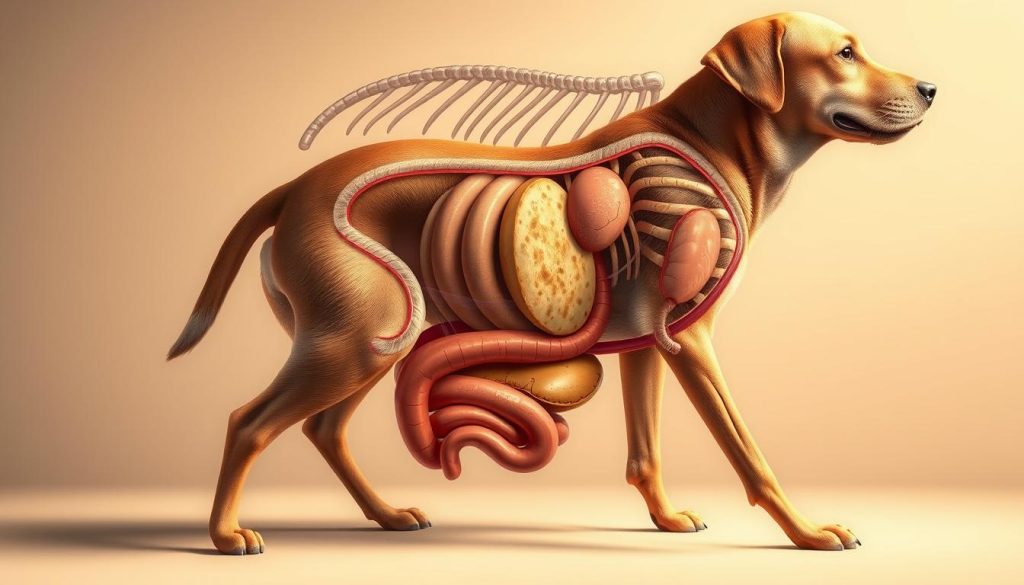
Understanding the impact of corn tortillas on your dog’s digestion can help you make informed decisions about their diet. Always prioritize your dog’s health and consult with a professional if you’re unsure about any aspect of their nutrition.
Feeding Corn Tortillas to Dogs: Guidelines
When it comes to feeding your dog corn tortillas, understanding the guidelines is crucial for their health and safety. While corn tortillas can be a safe treat for dogs in moderation, there are specific considerations to keep in mind.
Recommended Serving Sizes
Determining the right serving size for your dog is essential to avoid any adverse effects. The size of the serving will depend on the size and health of your dog.
- For small dogs, a serving size could be a small piece of a corn tortilla, about the size of a postage stamp.
- Medium-sized dogs can have a slightly larger piece, roughly the size of a quarter.
- Large dogs might be able to handle a half or even a whole corn tortilla, but this should be done with caution and under observation.
It’s critical to introduce corn tortillas gradually into your dog’s diet to monitor for any signs of digestive issues or allergic reactions.
Best Preparation Methods
The way you prepare corn tortillas for your dog can impact their safety and nutritional value. Here are some tips:
- Always choose plain corn tortillas without any seasonings or additives that could be harmful to dogs.
- Bake or grill the tortillas without adding oils or spices. This method helps retain the nutritional value.
- Tear the tortillas into appropriate sizes for your dog to prevent choking hazards.
Remember, treats should not make up more than 10% of your dog’s daily calorie intake. The rest should come from a well-balanced, nutrient-rich dog food.
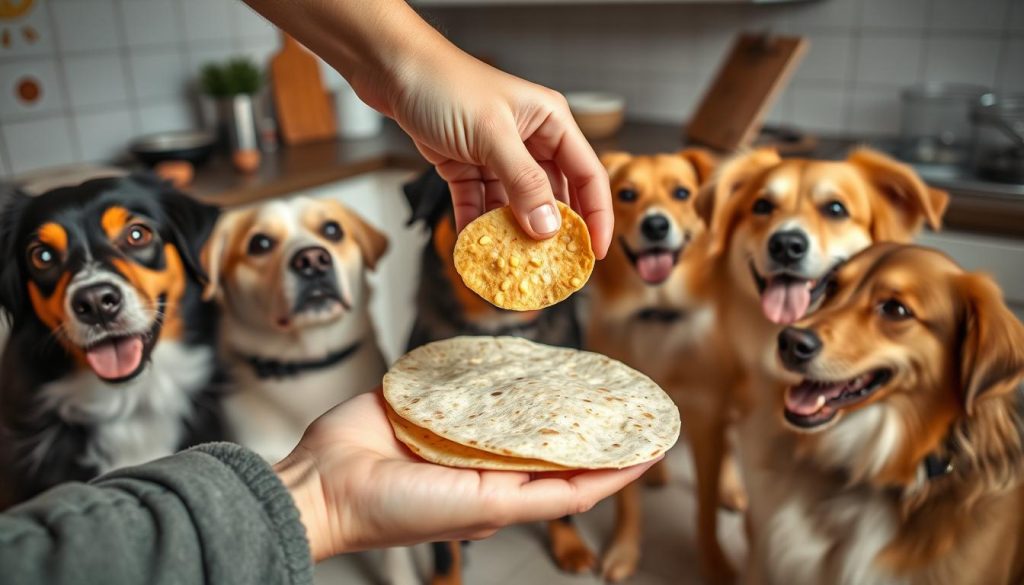
Types of Corn Tortillas: Which Are Best for Dogs?
Not all corn tortillas are created equal, especially when it comes to your dog’s health. The differences lie in their ingredients, production processes, and nutritional content.
Choosing the right type of corn tortilla for your dog can be a daunting task, given the variety available in the market. Understanding the differences between these types is crucial for making an informed decision.
Organic vs. Non-Organic Tortillas
One of the primary distinctions in corn tortillas is between organic and non-organic options. Organic tortillas are made from corn grown without synthetic pesticides, herbicides, or fertilizers, making them a preferable choice for dogs. Non-organic tortillas, on the other hand, may contain residues of these chemicals, potentially harming your dog’s health over time.
Opting for organic corn tortillas minimizes your dog’s exposure to harmful chemicals. Moreover, organic farming practices are generally more sustainable and environmentally friendly.
Tortillas with Additives
Another critical factor is the presence of additives in corn tortillas. Some tortillas contain preservatives, artificial flavors, or coloring agents. These additives can be detrimental to your dog’s health, causing allergic reactions or digestive issues.
When selecting corn tortillas for your dog, it’s essential to read the ingredient list carefully. Choose tortillas with minimal ingredients, ideally just corn and water, or those that are labeled as “additive-free” or “all-natural.”
- Look for certifications like USDA Organic for assurance.
- Avoid tortillas with added preservatives or flavor enhancers.
- Consider the source of the corn and the manufacturing process.
By being mindful of these factors, you can provide your dog with a safer and healthier treat. Always consult with your veterinarian before making any significant changes to your dog’s diet.
Alternatives to Corn Tortillas for Dogs
For dog owners looking to diversify their pet’s snack options, there are plenty of healthier choices beyond corn tortillas. While corn tortillas can be an occasional treat, exploring other alternatives can lead to a more balanced and varied diet for your dog.
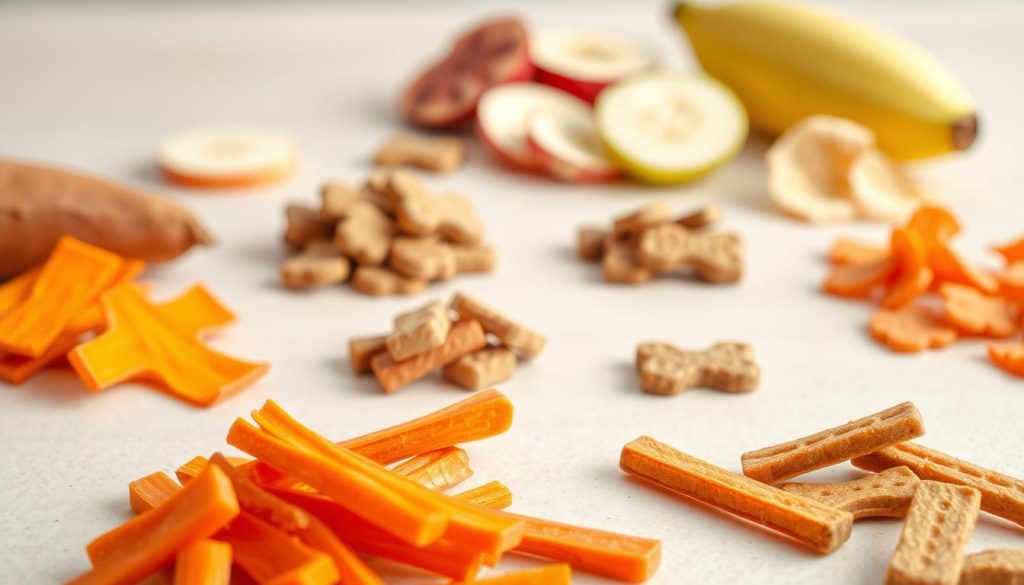
Healthier Options for Treats
When considering treats for your dog, it’s essential to opt for nutrient-rich foods that complement their regular diet. Some healthier alternatives include:
- Carrot sticks: Low in calories and rich in fiber, carrots make an excellent crunchy snack.
- Green beans: Another low-calorie option, green beans are rich in vitamins and minerals.
- Sweet potato chews: Rich in vitamins A and C, sweet potatoes are a nutritious treat when prepared correctly.
These options not only provide variety but also offer nutritional benefits that can enhance your dog’s overall health.
Homemade Dog Treat Recipes
Preparing homemade dog treats allows you to control the ingredients, ensuring they’re healthy and safe for your pet. Here are a couple of simple recipes:
- Peanut Butter Banana Biscuits: Mix mashed bananas with peanut butter, whole wheat flour, and eggs. Bake until firm.
- Sweet Potato and Carrot Treats: Boil or bake diced sweet potatoes and carrots until tender. Mash and form into shapes or patties.
These recipes are not only delicious but also packed with nutrients that can benefit your dog’s health.
Common FAQs about Dogs and Corn Tortillas
Corn tortillas are a staple in many households, but their suitability for dogs is a common concern among pet owners. As we explore the frequently asked questions about dogs and corn tortillas, we’ll address the specific considerations for puppies and the actions to take if your dog consumes too many.
Can Puppies Eat Corn Tortillas?
Puppies have sensitive digestive systems, and introducing new foods should be done with caution. While corn tortillas are not toxic to puppies, they should not replace a puppy’s regular, nutrient-rich diet. If you decide to give your puppy a small piece of corn tortilla, ensure it’s plain and free from additives.
It’s also crucial to consider the puppy’s age and size. For very young puppies, it’s best to avoid corn tortillas altogether until they are fully weaned and on a solid food diet. Always consult with your veterinarian before making any changes to your puppy’s diet.
What to Do If Your Dog Eats Too Many
If your dog eats too many corn tortillas, monitor their behavior closely for signs of digestive distress, such as vomiting, diarrhea, or lethargy. While corn tortillas are not typically harmful, consuming a large quantity can cause gastrointestinal upset.
In case of an adverse reaction, it’s essential to contact your veterinarian for advice. They can provide guidance based on your dog’s specific health needs and the amount of corn tortillas consumed.
| Signs of Digestive Issues | Actions to Take |
|---|---|
| Vomiting or diarrhea | Monitor closely and contact your vet if symptoms persist. |
| Lethargy or loss of appetite | Seek veterinary advice immediately. |
| No adverse symptoms | Continue to monitor and limit future corn tortilla consumption. |

In summary, while dogs can eat corn tortillas in moderation, it’s crucial to consider the individual dog’s health, age, and size. For puppies, it’s best to err on the side of caution and consult with a veterinarian before sharing human food.
Observing Your Dog After Eating Corn Tortillas
It’s vital to observe your dog closely after feeding them corn tortillas to identify any adverse reactions early. While corn tortillas are generally considered safe, individual reactions can vary.
Monitoring for Allergies or Reactions
After your dog consumes corn tortillas, watch for signs of an allergic reaction or intolerance. Symptoms can include itching, swelling, digestive issues like diarrhea or vomiting, and in severe cases, difficulty breathing.
Keep an eye on your dog’s stool quality and overall behavior. If you notice any unusual signs or if your dog seems uncomfortable, it’s best to consult with a veterinarian for advice.

When to Consult a Veterinarian
If your dog exhibits any of the following symptoms after eating corn tortillas, seek veterinary advice immediately: persistent vomiting, severe diarrhea, lethargy, or any signs of an allergic reaction.
- Monitor the duration of the symptoms.
- Note any changes in appetite or water intake.
- Be prepared to provide detailed information about what your dog ate and the symptoms you’ve observed.
Your veterinarian can provide guidance based on your dog’s specific health needs and help you determine the best course of action for future treats.
Nutritional Value: Corn Tortillas vs. Dog Food
Corn tortillas can be a tasty treat for dogs, but how do they stack up against traditional dog food in terms of nutritional value? Understanding the nutritional differences between these two is crucial for making informed decisions about your dog’s diet.
Comparing Different Carbohydrate Sources
Dog food typically contains a mix of various carbohydrate sources, such as grains, vegetables, and sometimes corn. Corn tortillas, on the other hand, are primarily made from corn. The digestibility and nutritional value of these carbohydrate sources can vary significantly.
Here’s a comparison of the nutritional content of corn tortillas and a typical dog food:
| Nutritional Component | Corn Tortillas | Typical Dog Food |
|---|---|---|
| Crude Protein | 5-7% | 25-30% |
| Crude Fat | 1-2% | 15-20% |
| Carbohydrates | 70-80% | 40-50% |
| Fiber | 2-4% | 2-5% |
As shown in the table, corn tortillas are high in carbohydrates but low in protein and fat compared to typical dog food. Dogs require a balanced diet that includes adequate protein, moderate fat, and limited carbohydrates.
Importance of a Balanced Diet
A balanced diet is essential for maintaining your dog’s overall health. While corn tortillas can be an occasional treat, they should not replace a well-formulated dog food. Dogs have different nutritional needs at various life stages, and their diet should be adjusted accordingly.
Key components of a balanced diet for dogs include:
- High-quality protein sources
- Moderate amounts of healthy fats
- Limited carbohydrates
- Essential vitamins and minerals
- Adequate fiber
Ensuring your dog’s diet is balanced will help maintain their health and prevent nutritional deficiencies. Always consult with a veterinarian before making significant changes to your dog’s diet.
Cultural Context: Corn Tortillas in Pet Diets
Corn tortillas, a fundamental component of various traditional dishes, are now being considered as a treat for dogs, reflecting broader cultural influences on pet feeding practices. As the diversity of food preferences in the U.S. continues to grow, pet owners are increasingly curious about incorporating human foods into their dogs’ diets.
Popularity of Corn Tortillas in the U.S.
The popularity of corn tortillas has surged in the United States, driven by the growing demand for Mexican and Latin American cuisine. This trend is not limited to human food; it has also influenced pet diets. Many pet owners, seeking to share their cultural heritage with their pets, are exploring the possibility of using corn tortillas as a treat.
The table below illustrates the rising trend of corn tortilla consumption in the U.S. and its potential impact on pet diets.
| Year | Corn Tortilla Sales (in million USD) | Pet Owners Using Human Food as Treats (%) |
|---|---|---|
| 2018 | 500 | 20 |
| 2020 | 700 | 30 |
| 2022 | 900 | 40 |
Influences on Dog Diets
Cultural influences play a significant role in shaping dog dietary choices. Pet owners often seek to mirror their own dietary preferences in their pets’ feeding habits. The growing acceptance of corn tortillas as a human food item has led to increased interest in their potential as a dog treat.
Key factors influencing the inclusion of corn tortillas in dog diets include:
- Cultural heritage and traditional cuisine
- Growing trend of humanization of pets
- Increased availability and variety of corn tortillas in the U.S. market
As the trend continues, understanding the implications of feeding corn tortillas to dogs becomes increasingly important for pet owners and veterinarians alike.
Expert Opinions on Dogs Eating Corn Tortillas
Veterinarians and pet nutritionists have shared their insights on the suitability of corn tortillas for canine consumption. Their expert opinions provide valuable guidance for dog owners considering corn tortillas as a treat.
Veterinarian Insights
Veterinarians generally agree that plain corn tortillas, in moderation, are not toxic to dogs. However, they emphasize the importance of considering the individual dog’s health, allergies, and dietary needs. Dr. Jane Smith, a renowned veterinarian, suggests that while corn tortillas are not a nutritionally balanced food for dogs, they can be an occasional treat if given in small amounts. It’s crucial to monitor your dog’s reaction to new foods, including corn tortillas, to prevent any adverse effects.
Pet Nutritionist Recommendations
Pet nutritionists offer additional insights into how corn tortillas can fit into a dog’s diet. They recommend that corn tortillas should not replace a dog’s regular, balanced meals. Nutritionist Sarah Johnson advises that if you choose to give your dog corn tortillas, opt for plain, unseasoned ones to avoid adding unnecessary salt or spices to their diet. Furthermore, pet nutritionists stress the importance of maintaining a varied diet for dogs to ensure they receive all necessary nutrients.
Both veterinarians and pet nutritionists agree that while corn tortillas are not harmful in small quantities, they should be treated with caution and considered as an occasional treat rather than a staple in a dog’s diet.
Tips for Introducing Corn Tortillas to Your Dog
To safely incorporate corn tortillas into your dog’s diet, follow a gradual introduction plan. This approach will help prevent digestive issues and ensure a smooth transition.
Gradual Introduction Methods
Start by offering a small piece of corn tortilla, about the size of a dice, to test your dog’s tolerance. Monitor your dog’s reaction closely for any signs of discomfort or allergic reactions.
If your dog shows no adverse effects, you can gradually increase the amount over time. However, it’s crucial to maintain moderation, as corn tortillas should not replace your dog’s regular meals.
Pairing with Other Foods
Combining corn tortillas with other foods can enhance their nutritional value and make them more appealing to your dog. Consider pairing them with lean proteins like chicken or turkey, or with vegetables such as carrots or green beans.
Here is a simple table to illustrate some healthy pairing options:
| Food | Benefits |
|---|---|
| Corn Tortilla + Chicken | High protein content, easily digestible |
| Corn Tortilla + Carrots | Rich in fiber, supports healthy digestion |
| Corn Tortilla + Green Beans | Low in calories, rich in vitamins |
By introducing corn tortillas gradually and pairing them with other nutritious foods, you can provide your dog with a tasty and healthy treat.
Conclusion: Can Dogs Enjoy Corn Tortillas?
Dogs can eat corn tortillas in moderation, but it’s crucial to prioritize responsible feeding practices. Corn tortillas can be a safe treat for dogs when given in limited amounts and prepared correctly.
Safe Treats for Your Dog
When introducing corn tortillas to your dog’s diet, ensure they are plain and free from additives. Monitor your dog’s reaction to this new food, watching for signs of digestive issues or allergic reactions. A balanced diet with high-quality dog food should always be the mainstay, with treats like corn tortillas serving as occasional supplements.
Practicing Responsible Feeding
To keep your dog healthy, be mindful of the treats you provide. Limit the amount of corn tortillas and avoid making them a regular part of their diet. By doing so, you can safely include corn tortillas as an occasional treat, maintaining a happy and healthy relationship with your pet.

